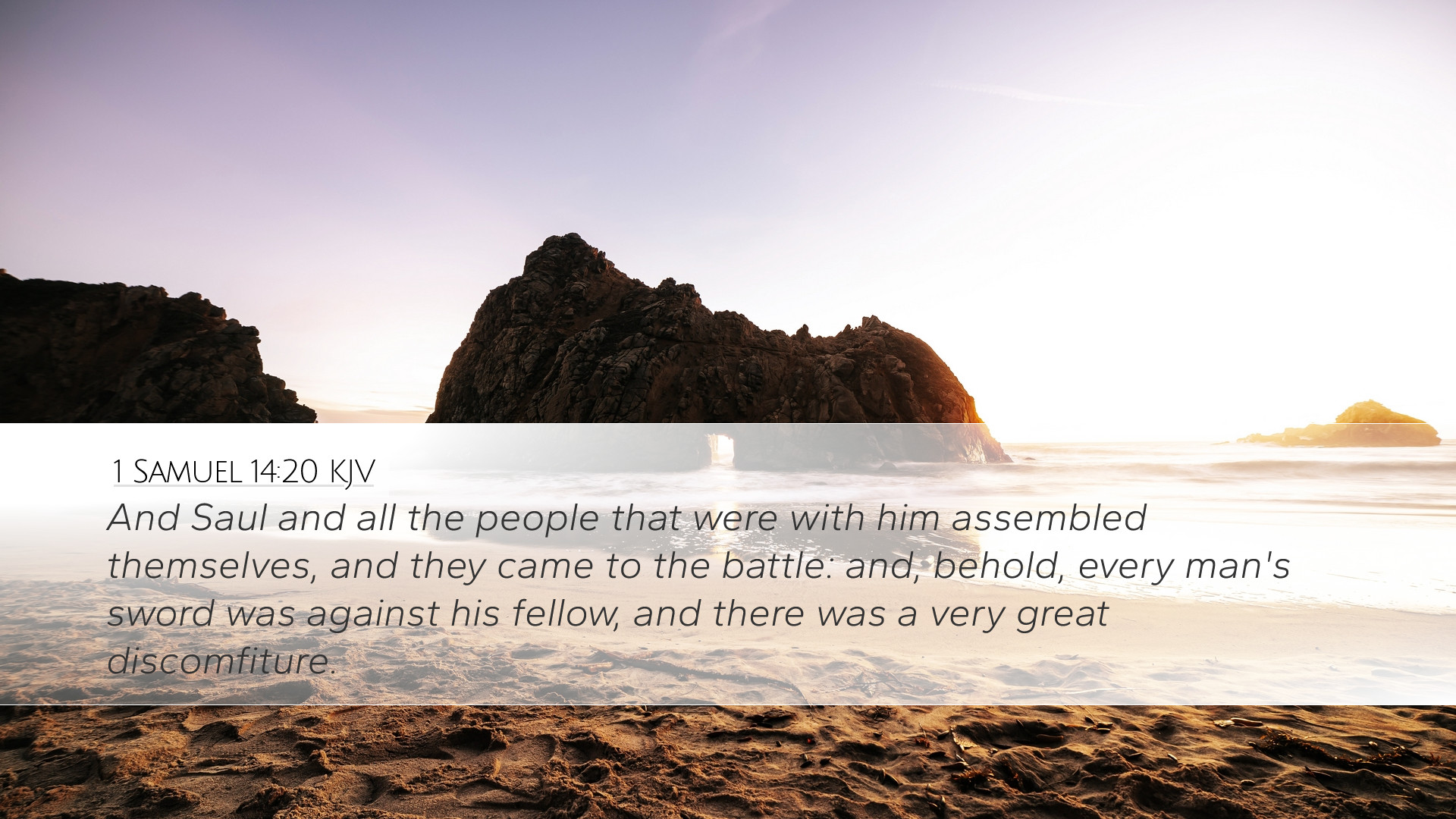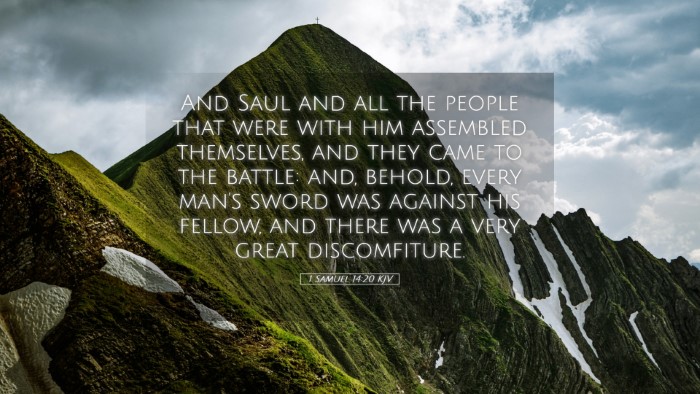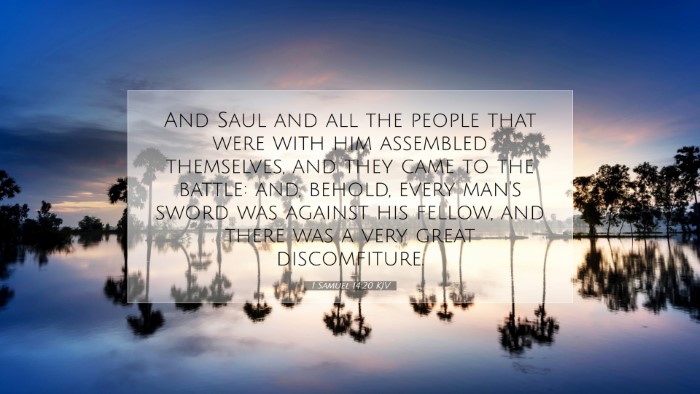Commentary on 1 Samuel 14:20
1 Samuel 14:20 states: "Then Saul and all the people that were with him assembled themselves, and they came to the battle: and, behold, every man's sword was against his fellow, and there was a very great discomfiture."
Contextual Background
The verse falls within the context of Saul's leadership and the conflict between Israel and the Philistines. Prior to this moment, King Saul had made a war decision that was pivotal and, in this passage, we see the outcome of disunity among the ranks of his own men.
Exegesis and Insights
The commentary from various scholars reveals profound interpretations of this verse, which reflect on both spiritual and practical applications.
Matthew Henry's Commentary
Matthew Henry draws attention to the chaos that ensued during this battle. He notes that the phrase "every man's sword was against his fellow" suggests not only a physical conflict but also indicates the lack of unity among the Israelite forces:
- Henry emphasizes that this discord originated from Saul's impulsive decisions and the rash oath he imposed on his soldiers. His command against eating during the day of battle created a situation where the soldiers were weakened and confused.
- He posits that a leader's actions can lead to broader turmoil, and in the absence of faith and unity, even God's people can turn against one another.
Albert Barnes' Notes on the Bible
Albert Barnes examines the historical and military implications of the disarray described in this verse. He highlights the quick transition from organized leadership to chaos:
- Barnes identifies that the internal conflict within the Israelite camp showcases how fear can breed panic, causing individuals to turn upon each other.
- He warns that the “great discomfiture” mentioned acts as a reminder of the importance of godly leadership in maintaining peace and order among God's people.
Adam Clarke's Commentary
Adam Clarke elaborates on the psychological aspects of this disunity, suggesting that the fear instilled by the Philistines heavily contributed to the Israelites' inward conflict:
- Clarke notes that the battle described is symbolic of spiritual warfare, where lack of focus on God can render believers vulnerable to confusion and disarray.
- He explains how Saul's decisions were rooted in fear rather than faith, leading to disastrous outcomes for his troops, which Clarke equates with losing sight of divine guidance during trials.
Theological Implications
From the amalgamation of insights from the public domain commentators, several theological implications arise:
- The Importance of Unity: Unity within the body of Christ is critical for effective ministry and outreach. This scripture serves as a caution that disunity can lead to disastrous results.
- Leadership Accountability: The decisions of leaders affect those they govern. The consequences of Saul's leadership serve as a timeless principle for contemporary leaders.
- Spiritual Vigilance: Believers must remain vigilant against the spiritual battles that not only involve external foes but can also lead to internal strife.
Practical Applications
Here are practical applications derived from this verse that may be beneficial for pastors and leaders in contemporary settings:
- Encourage open communication within ministry teams to prevent misunderstandings and foster a spirit of unity.
- Regularly reflect on the impact of decisions made by leaders, ensuring they align with biblical principles and the welfare of the community.
- Promote a culture of prayer and reliance on God to navigate through uncertain times, thereby reducing fear among the congregation.
Conclusion
In conclusion, 1 Samuel 14:20 serves as a powerful reminder of the ramifications of disunity, both in a historical and spiritual context. The insights from Matthew Henry, Albert Barnes, and Adam Clarke provide profound reflections that are vital for pastors, students, and scholars alike, emphasizing the need for godly leadership, awareness of internal conflicts, and the importance of maintaining unity in the face of adversity.


